Current project from grants awarded in 2016
POSTED 2 January 2017
Ten Wellington-based medical researchers received grants in the second funding round of 2016. Seven Research Grant applicants received a total of $106,514 to undertake innovative medical research and a further three Travel Grants totalling $9,700 were approved to assist local researchers meet the cost of presenting their research findings at international conferences.
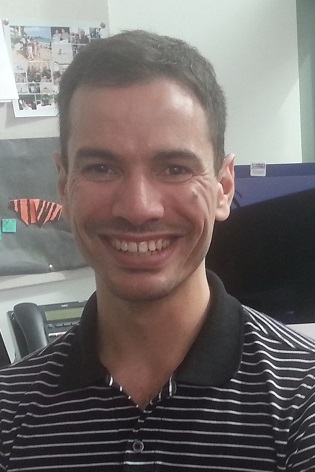 Carl Beyers received a $10,000 Research for Life grant to assess the impact of MIS416 therapy in altering the immune system of people with progressive multiple sclerosis (MS). There is an urgent need for therapies which are effective at treating progressive MS. MIS416 has been shown to be safe to use in progressive MS, and a large stage two clinical trial offering MIS416 as treatment concluded recruitment earlier this year. This grant is in aid of work to define how MIS416 alters inflammation at a cellular level. Access to samples from the trial, a valuable resource, offers an excellent opportunity to further medical research into MS treatments. Mr. Beyers is a chartered Biomedical Scientist completing a PhD with the multiple sclerosis research group at Victoria University.
Carl Beyers received a $10,000 Research for Life grant to assess the impact of MIS416 therapy in altering the immune system of people with progressive multiple sclerosis (MS). There is an urgent need for therapies which are effective at treating progressive MS. MIS416 has been shown to be safe to use in progressive MS, and a large stage two clinical trial offering MIS416 as treatment concluded recruitment earlier this year. This grant is in aid of work to define how MIS416 alters inflammation at a cellular level. Access to samples from the trial, a valuable resource, offers an excellent opportunity to further medical research into MS treatments. Mr. Beyers is a chartered Biomedical Scientist completing a PhD with the multiple sclerosis research group at Victoria University.
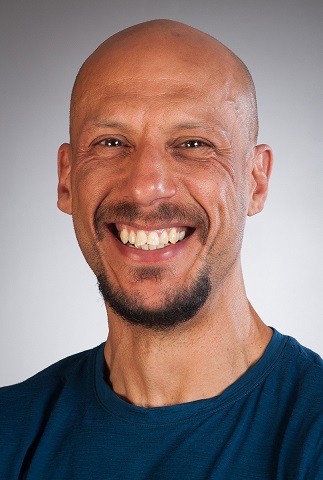 Dr. Darren Day received a $20,250 Research for Life grant to undertake research into developing a new type of anti-microbial drug for treating bacterial infections that are resistant to current antibiotics. Dr Day’s research uses DNA molecules coated with tiny particles of silver to specifically bind to bacteria and sensitize them to conventional antibiotic therapy. Dr. Day is a senior lecturer in the School of Biological Sciences at Victoria University of Wellington and the program manager for Cellular and Molecular Biosciences.
Dr. Darren Day received a $20,250 Research for Life grant to undertake research into developing a new type of anti-microbial drug for treating bacterial infections that are resistant to current antibiotics. Dr Day’s research uses DNA molecules coated with tiny particles of silver to specifically bind to bacteria and sensitize them to conventional antibiotic therapy. Dr. Day is a senior lecturer in the School of Biological Sciences at Victoria University of Wellington and the program manager for Cellular and Molecular Biosciences.
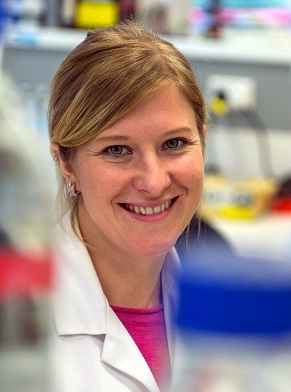 Dr. Lisa Connor received a $9,342 Research for Life Grant to investigate the cellular and molecular mechanisms involved in the initiation of allergic immune responses. NZ has one of the highest rates of allergic diseases in the world, affecting up to 20% of the population. The immunological mechanisms involved when an individual becomes allergic to an allergen is not well understood. Dendritic cells are master regulators of the adaptive immune system and provide the signals required to drive specific immune responses. The goal of this project is to investigate the specificity of potential candidate molecules on dendritic cells as biomarkers for development of the allergic immune response. Lisa is a Research Fellow at the Malaghan Institute of Medical Research, and Lecturer at the School of Biological Sciences at Victoria University.
Dr. Lisa Connor received a $9,342 Research for Life Grant to investigate the cellular and molecular mechanisms involved in the initiation of allergic immune responses. NZ has one of the highest rates of allergic diseases in the world, affecting up to 20% of the population. The immunological mechanisms involved when an individual becomes allergic to an allergen is not well understood. Dendritic cells are master regulators of the adaptive immune system and provide the signals required to drive specific immune responses. The goal of this project is to investigate the specificity of potential candidate molecules on dendritic cells as biomarkers for development of the allergic immune response. Lisa is a Research Fellow at the Malaghan Institute of Medical Research, and Lecturer at the School of Biological Sciences at Victoria University.
 Dr. James Fingleton received a $10,000 Research for Life grant to undertake research to help people with respiratory failure. Chronic obstructive pulmonary disease (COPD) affects 14% of adults aged over 40 in NZ and is responsible for over 12,000 hospital admissions every year. Dr. Fingleton’s research is exploring new treatment options to treat the respiratory failure that affects some people with COPD. Dr. Fingleton is deputy director of the Medical Research Institute of New Zealand, Wellington, and a consultant respiratory physician at Capital and Coast District Health Board.
Dr. James Fingleton received a $10,000 Research for Life grant to undertake research to help people with respiratory failure. Chronic obstructive pulmonary disease (COPD) affects 14% of adults aged over 40 in NZ and is responsible for over 12,000 hospital admissions every year. Dr. Fingleton’s research is exploring new treatment options to treat the respiratory failure that affects some people with COPD. Dr. Fingleton is deputy director of the Medical Research Institute of New Zealand, Wellington, and a consultant respiratory physician at Capital and Coast District Health Board.
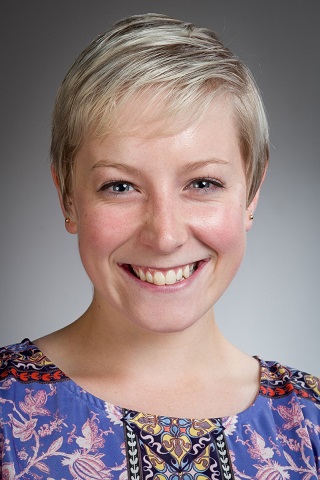 Kathryn Hally received a $25,833 Research for Life grant to investigate platelet activation in acute coronary syndromes (ACS), the leading global cause of death. Anti-platelet medication is the standard-of-care for ACS patients but a proportion of patients will continue to experience recurrent cardiovascular events despite treatment. Kathryn’s research focuses on how platelets may be alternatively activated in responses to infection and how this may relate to patient outcome. Kathryn Hally is a PhD student at the School of Biological Sciences at Victoria University of Wellington.
Kathryn Hally received a $25,833 Research for Life grant to investigate platelet activation in acute coronary syndromes (ACS), the leading global cause of death. Anti-platelet medication is the standard-of-care for ACS patients but a proportion of patients will continue to experience recurrent cardiovascular events despite treatment. Kathryn’s research focuses on how platelets may be alternatively activated in responses to infection and how this may relate to patient outcome. Kathryn Hally is a PhD student at the School of Biological Sciences at Victoria University of Wellington.
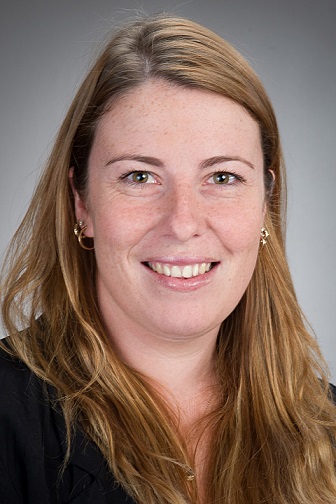 Dr. Ana Holley received a $13,000 Research for Life Grant to support research into discovering early predictors of left ventricular (LV) remodeling following a heart attack. The process of remodeling ultimately leads to the development of heart failure, a disease that carries a high morbidity and mortality rate.
Dr. Ana Holley received a $13,000 Research for Life Grant to support research into discovering early predictors of left ventricular (LV) remodeling following a heart attack. The process of remodeling ultimately leads to the development of heart failure, a disease that carries a high morbidity and mortality rate.
Dr. Holley’s research examines the use of small molecules, called microRNA’s, as early markers of LV dysfunction, and their relationship to heart failure development following a heart attack. An improved ability to predict those patients who are more likely to develop heart failure may allow intervention prior to significant LV remodeling to improve clinical outcomes. Dr. Holley is a Postdoctoral Fellow in the Cardiovascular Research Group at the University of Otago, Wellington.
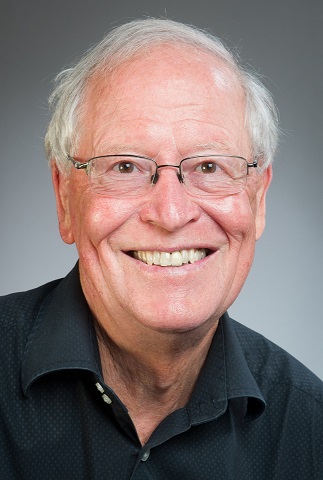 Professor John Miller received an $18,000 Research for Life grant to undertake research into the development of new anti-cancer chemotherapeutics. Current drugs for solid tumours have unwanted side effects, and cancer cells can acquire resistance to these drugs. New drugs that are better tolerated and can improve patient outcomes are needed to either replace or be used in combination with those now in use. Professor Miller carries out his research and teaches in the School of Biological Sciences at Victoria University of Wellington, and is a member of the University's Centre for Biodiscovery.
Professor John Miller received an $18,000 Research for Life grant to undertake research into the development of new anti-cancer chemotherapeutics. Current drugs for solid tumours have unwanted side effects, and cancer cells can acquire resistance to these drugs. New drugs that are better tolerated and can improve patient outcomes are needed to either replace or be used in combination with those now in use. Professor Miller carries out his research and teaches in the School of Biological Sciences at Victoria University of Wellington, and is a member of the University's Centre for Biodiscovery.
Travel Grants were awarded in this round to the following:
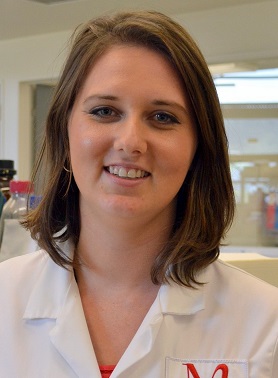 Kerry Hilligan, a PhD candidate at the Malaghan Institute of Medical Research, received a $1,500 travel grant from Research for Life to present her research at the 14th International Symposium on Dendritic Cells in Shanghai this year. Kerry’s research aims to improve current vaccination strategies by understanding how a population of innate immune cells, known as dendritic cells, initiate and regulate protective immune responses against bacterial, fungal and parasitic infections.
Kerry Hilligan, a PhD candidate at the Malaghan Institute of Medical Research, received a $1,500 travel grant from Research for Life to present her research at the 14th International Symposium on Dendritic Cells in Shanghai this year. Kerry’s research aims to improve current vaccination strategies by understanding how a population of innate immune cells, known as dendritic cells, initiate and regulate protective immune responses against bacterial, fungal and parasitic infections.
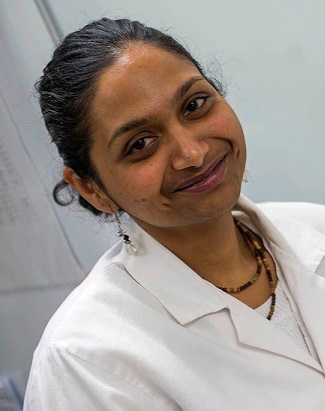 Karmella Naidoo, a PhD student at the Malaghan Institute of Medical Research received a travel grant for $2500. This grant will support her travel to Switzerland in March 2017, where she will present her research findings at the 11th World Immune Regulation Meeting in Davos. Karmella’s research is a part of the allergy programme at the Malaghan and focuses on investigating inflammatory markers in eczema. The aim of the project is to identify specific immune pathways that could be targeted to treat eczema. Thus, giving the many allergy sufferers in New Zealand a chance at conquering this debilitating disease.
Karmella Naidoo, a PhD student at the Malaghan Institute of Medical Research received a travel grant for $2500. This grant will support her travel to Switzerland in March 2017, where she will present her research findings at the 11th World Immune Regulation Meeting in Davos. Karmella’s research is a part of the allergy programme at the Malaghan and focuses on investigating inflammatory markers in eczema. The aim of the project is to identify specific immune pathways that could be targeted to treat eczema. Thus, giving the many allergy sufferers in New Zealand a chance at conquering this debilitating disease.
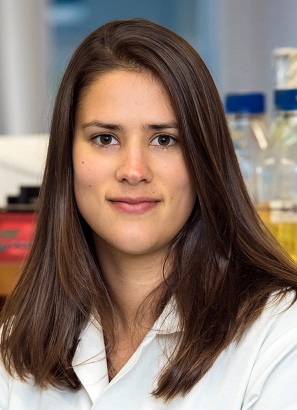 Jennifer Soundy, a third year PhD student at Victoria University, received a travel grant of $2,000 to present her research findings at the International Society of Aptamers conference in Oxford in April next year. Jennifer is undertaking a study on the development of novel antimicrobials for fighting antibiotic-resistant bacterial infections.
Jennifer Soundy, a third year PhD student at Victoria University, received a travel grant of $2,000 to present her research findings at the International Society of Aptamers conference in Oxford in April next year. Jennifer is undertaking a study on the development of novel antimicrobials for fighting antibiotic-resistant bacterial infections.
Next closing date for grant applications
Research For Life (Wellington Medical Research Foundation) calls for grant applications in March and September of each year and the next closing date for applications has been announced as 7 March 2017.



